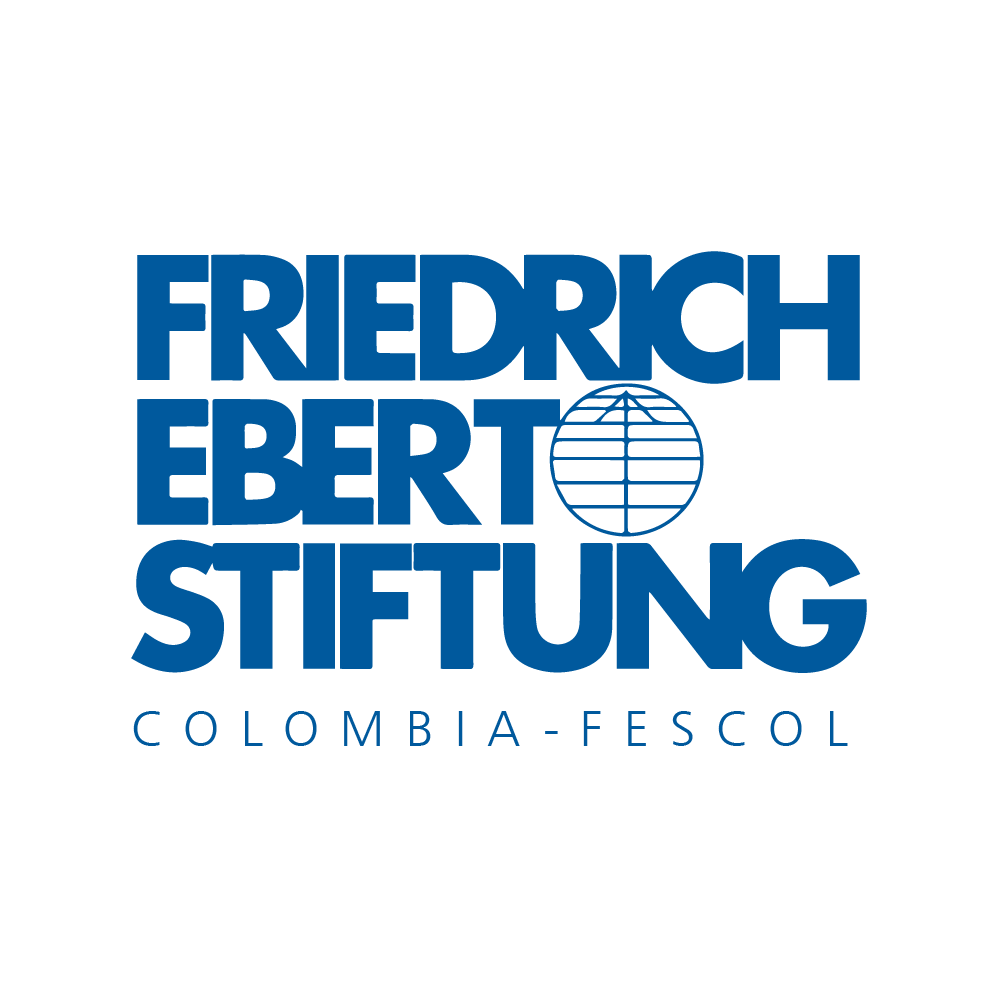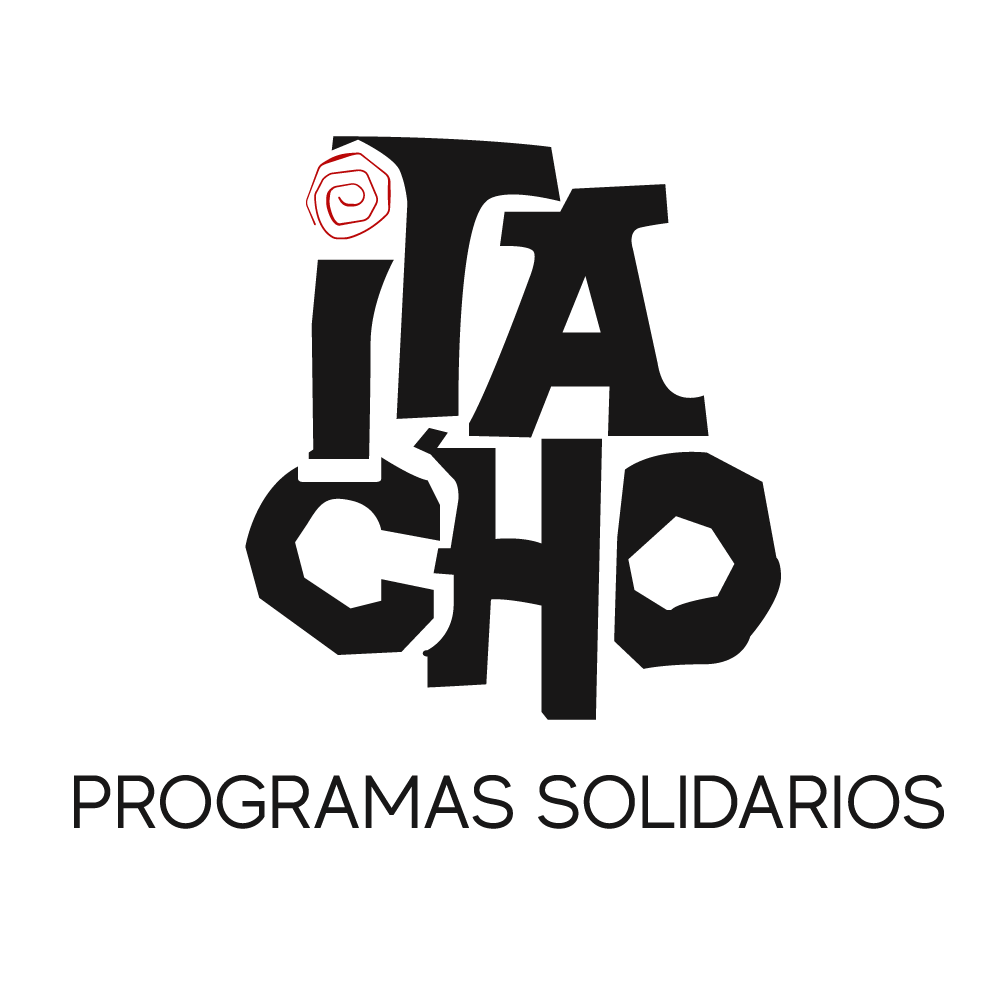When the degradation of the armed conflict reached its peak, most of Colombian society preferred to look the other way or they had to do so in order to move forward in the face of impotence. As the countryside drowned in blood and was forcibly depopulated by the guns of different groups claiming to protect the people and fight for a better country, indifference grew and many turned their backs on this reality. The reaction was similar with selective assassinations and attacks with all kinds of explosives in cities and populated centers.
However, the country is less than a year away from facing an uncomfortable mirror: the truth about how it came to have almost 9.2 million victims and with records as absurd as counting more disappeared people than several dictatorships in the south of the continent combined, when it has always lived in a supposedly solid democracy.
The starting point of that gigantic undertaking is Decree 588 of 2017, which gave life to the Truth Clarification Commission (CEV), as part of the implementation of the Peace Agreement reached by the Colombian State with the extinct FARC guerrillas. From that moment on, eleven commissioners and their work teams began to travel around the country to listen to victims of all armed actors, perpetrators from all sides, social organizations, political leaders and to dig through thousands of documents.
It is a complex task due to the number of people to consult and the dimension of cases to document. As if that were not enough, the violence has been reactivated in some regions of the country and sectors that do not want their past to be scrutinized have threatened both victims and perpetrators not to talk. And, in the middle, the polarization and the political environment that try to delegitimize the institutionalism created by the Peace Accord have played against the Commission. To all this must be added the Covid-19 pandemic that slowed down its field work.
Despite all these adversities, the CEV continued to fulfill its mandate and different protagonists of the armed conflict approached it to tell their truth. Thus, up to last October, it heard 27,006 people and received 922 reports from victims, civil society organizations and state institutions, which give an account of serious facts of the armed conflict.
It also held 13 Truth Encounters and 13 Dialogues for Non-Repetition in different regions of the country, with more than 13,000 participants from various social sectors, including victims, perpetrators, public officials, academic experts, businessmen, among others. It also listened to the five presidents of the Republic who occupied the Casa de Nariño between 1990 and 2018, to hear their version of the armed conflict and the decisions they took to address it.
All of this work is being decanted in the so-called Final Report, with which the Commission will explain the causes of the armed conflict, its impacts and will issue a series of recommendations so that these events are not repeated again and the country achieves reconciliation. The document was to be presented on November 28, when its mandate ended, but the Constitutional Court, accepting the request of victims’ organizations and human rights defenders, extended the publication deadline until June of next year, because the pandemic disrupted its work schedule.
The road to the truth
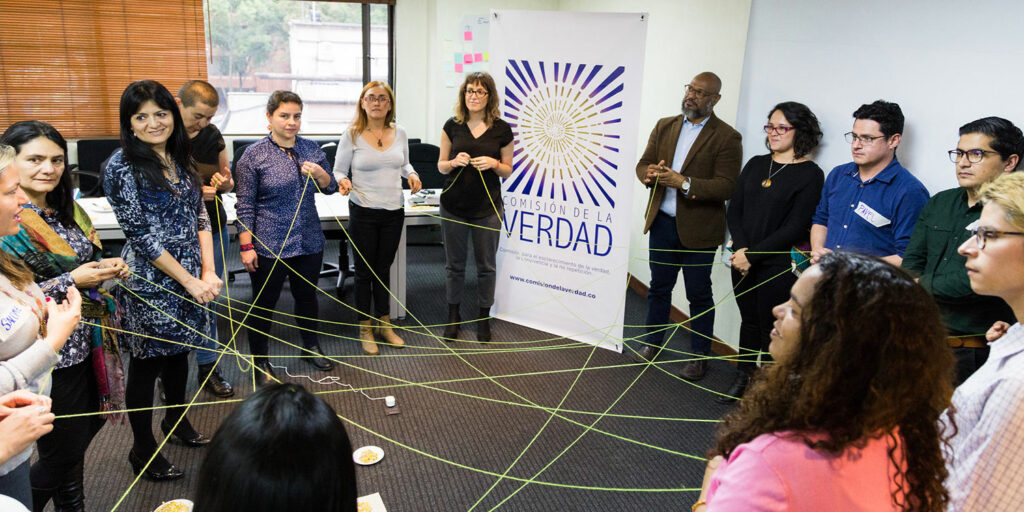
There are high hopes for the CEV’s work. Most victims’ collectives and human rights organizations highlight the fact that its members approached them openly to listen to them and they had the opportunity to participate extensively in the construction of the Final Report.
Jorge*, a spokesperson for the National Victims’ Roundtable, created by Law 1448 of 2011 -also known as the Victims’ Law-, to represent those affected by the armed conflict and have dialogue with the State, considers that, in general terms and with all the difficulties, the Commission has done a good job and they hope that it will end up fulfilling the mission entrusted by the Peace Agreement.
“We hope that the Final Report fulfills the expectations of the victims and is not manipulated, that it really generates truth. That truth implies that all the affectations that we suffered are recognized without any distinction and that all those who participated in the armed conflict are consulted. Hopefully, the work of the Commission will allow us to know all those who were behind the scenes moving the war”, summarizes this spokesman, who asked for his name to be withheld.
For her part, Adriana Arboleda, spokesperson for the National Movement of Victims of State Crimes (Movice), highlights the fact that the Commission is trying to turn the truth of the armed conflict into a public good so that society as a whole understands its importance. And she places special emphasis on the Encounters for the Truth, to understand the role of the victims and make their resistance processes visible.
Regarding the Final Report, she points out that Movice has high expectations regarding the responsibility of the institutions in the armed conflict: “It must recognize that there is state criminality and that the state has acted as an actor, violating human rights; that this has been part of strategies and policies, and not of isolated events or bad apples”.
She also suggests that it reflects the support that paramilitarism had. “It must be recognized that it has been a state policy and a strategy to annihilate social processes of any kind; it must also address the role of a certain business sector with the paramilitary strategy and the protection of the interests of certain economic sectors to accumulate wealth and land”, she requires.
For these reasons, she asks the CEV to build a deep truth that goes beyond the actors in confrontation because “it would be very frustrating for us a report that is, as other Truth Commissions in the world have done, simply based on the theory of the two demons: that says that everyone here was very bad and that everyone committed great crimes, without delving into the causes, consequences, impacts and damages they generated”.
Jaqueline Rentería, representative of the Association of Mothers of Victims of False Positives (Mafapo), which is calling for justice for the murder of civilians, mostly young people of limited means who under false pretenses were taken to other regions of the country, where they were killed by members of the National Army and presented as guerrillas killed in combat to obtain benefits in their military career, highlights the efforts to achieve reconciliation through the construction of truth.
“At the end of October, we had a private meeting through the Commission with a sergeant and a colonel who are directly involved in our cases. There we were able to hear their testimonies and learn about the pressure within the Army to show results. We were very anxious and they were very cautious, but in the end, things flowed and we learned many details that we had not heard in their hearings”, she says.
In addition, she emphasizes that actions like this can serve to pave the way for reconciliation: “The idea is that the compromisers do some work as a measure of restoration, that we can work and walk together for a better future for our youth and the country. We cannot remain with hatred because in that way we are not contributing to anything. We have to reconcile; we have to forgive and we have to move forward to achieve a better future”.
In Mafapo they ask the CEV Final Report, as a measure of satisfaction, to allow them to know the truth that has eluded them for years: to know who are the direct perpetrators of these crimes.
“It is very frustrating that they spoke with former President Uribe and he says he does not know where the 6,402 ‘false positives’ documented by the JEP came from. We need those who appear before the JEP to contribute to the clarification and not give merits to such important people who did not provide the truth,” said Rentería.
Truth with a differential approach
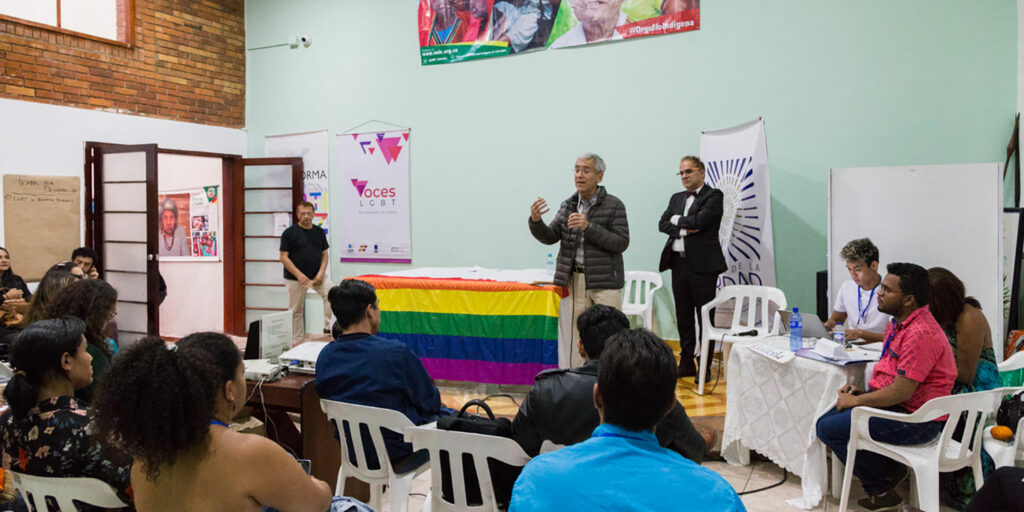
The Afro-descendant and indigenous communities consider that the greatest advances in the implementation of the Peace Agreement are to be found in the institutions that make up the Integral System of Truth, Justice, Reparation and Non-Repetition.
They emphasize that they were consulted in the creation of the working protocols of the Truth Commission, the Special Jurisdiction for Peace and the Unit for the Search for the Disappeared. They are pleased that specific units have been created to guarantee that the ethnic vision is present in their work and that Afro and indigenous people are in important positions in the three units.
Richard Moreno, coordinator of the Afro-Colombian Peace Council (Conpa) and member of the Interethnic Solidarity Forum Chocó (Fisch), maintains that the Final Report must reflect the structural causes of the armed conflict and its disproportionate consequences in ethnic territories, indicating the intellectual and material authors and who benefited from the serious crisis suffered by the native peoples.
For Feliciano Valencia, indigenous Nasa and senator of the Republic for the Alternative Indigenous and Social Movement (MAIS), it is necessary that the CEV report account for the collective impacts of the conflict on identity, self-government, autonomy of the peoples and territory, that is, “the indigenous collective subject”.
Furthermore, “to show through different stories that the relationship and the effects on indigenous communities are not only limited to the armed conflict of fifty years ago, but to a tradition of colonization and exclusion of indigenous peoples and communities, because there is a construction of a monocultural and racist nation”.
The CEV has also worked with a gender focus on the horizon. Juliana Ospitia, who has followed it from the organization Sisma Mujer, highlights the first Encounter for Truth that the Commission held in June 2019, dedicated to the sexual violence suffered by women and members of the LGBTI community in the midst of the armed conflict.
And in terms of gender violence, she hopes that these crimes are placed at the same level of importance as other crimes such as kidnapping, forced displacement or extrajudicial executions: “We ask for it because language builds realities and by naming we create actions. If the report manages to give sexual violence the positioning it requires, it will be very important”.
In Sisma Mujer they consider that it is key to express “that all armed actors perpetrated sexual violence; that it is an intentional and systematic practice, which feeds on patriarchy and affects women in a differential way”.
Dots in the road
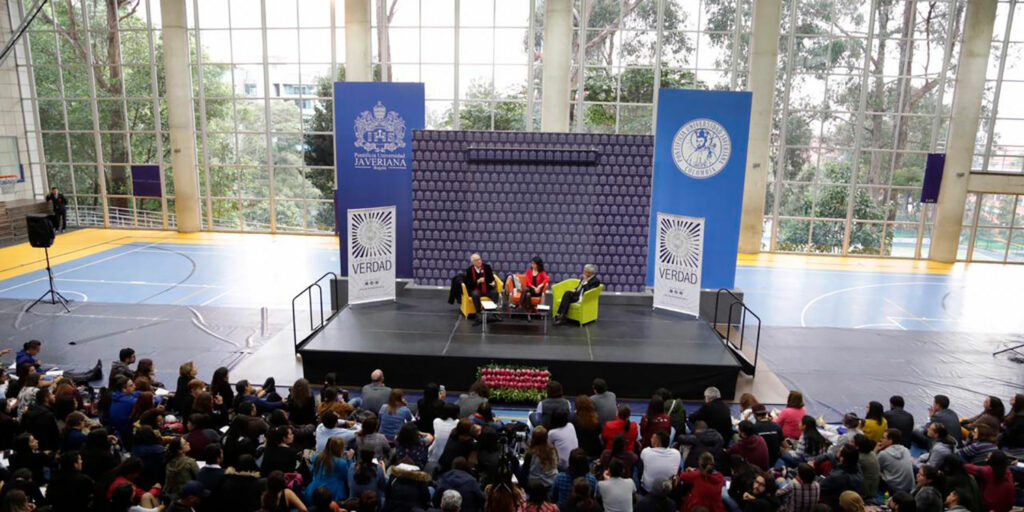
The Truth Commission is not generally accepted and also has detractors. One of them is the Colombian Federation of Victims of the FARC (Fevcol). Sebastián Velásquez, its legal representative and spokesman, considers it a “fraud”.
“That is a disgrace. Father Francisco de Roux, in all these three years, never gave us, FARC victims, guarantees to tell what happened, while, yes sir, I opened all the doors and all the interlocution to the organizations that socially have been very close to the FARC. And this gentleman continues to insist that he has not had time to build the truth, that it is an accommodated and ideologized truth, and he is asking for more time and more money”, questions Velásquez.
Adel González, lawyer and representative of the White Rose Corporation, which groups 250 women who were recruited as minors by the FARC and denounce multiple crimes committed within the former guerrilla, including sexual violence, indicates that at the beginning they were listened to by the Commission and that some delegates even participated in the first Meeting for the Truth held by that entity, dedicated to victims of sexual and gender violence.
However, she regrets that later they ceased to have contact and that there was no event dedicated to victims of sexual violence in the FARC, as there was for other types of crimes. She also questions the CEV’s failure to focus on specific cases, such as the ones she represents, arguing that there is a large universe of victims and that it cannot treat them individually.
“We must not change history or transform the reality of all that happened. Our organization has been determined to reveal what was going on inside the FARC. The Truth Commission should be called not only to collect the subversion’s disagreements, but also to record the most relevant facts that humanity cannot allow to be repeated”, she says.
The claims against the Truth Commission do not come exclusively from sectors that question its legitimacy and doubt its impartiality. Organizations that accept its work regret that, due to time limitations and methodological issues, its investigators did not reach several rural areas to take testimony from more victims.
In this regard, the president of the CEV, the priest Francisco de Roux, points out that the work of the entity has been stripped of political interests and recognizes that they did everything possible within the scope of their abilities to talk to as many people as possible, but “there will always be a totally legitimate dissatisfaction on the part of the victims”. (See here the complete interview with Father De Roux).
He explains: “With each victim, or when we go to jail, we spend one or two days; visiting a victim community in the mountains takes a week. If we were to dedicate one minute to the 9 million victims, it would take us 17 years, working 24 hours a day, to hear them all. This claim is perfectly legitimate, but I can say: we have honestly received with all our heart all those who have come to the Commission, we have gone out to look for them, we have gone to the places where it seemed to us those things were the hardest”.
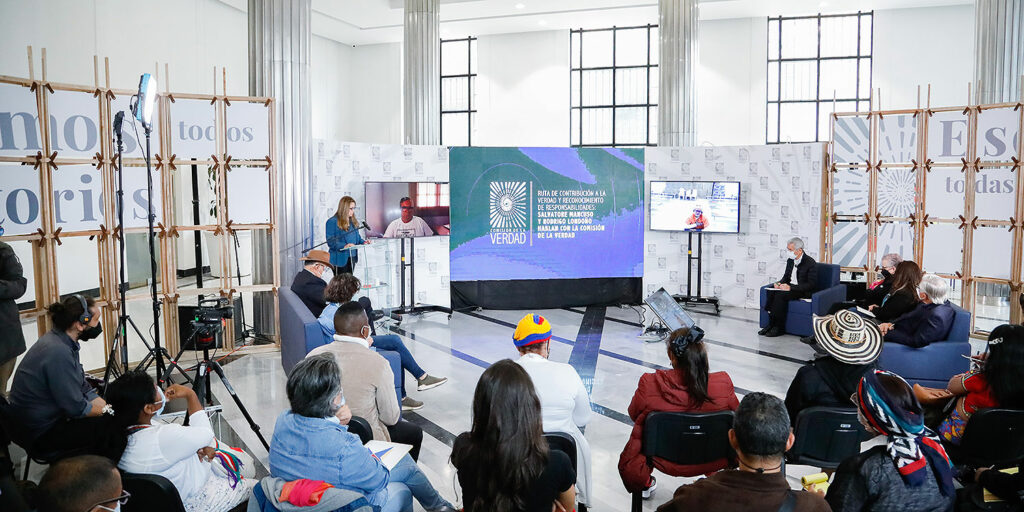
Another recurrent criticism is the lack of contrast in public spaces when they listened to important personalities related to the armed conflict, as happened with former presidents Juan Manuel Santos, Álvaro Uribe Vélez and Andrés Pastrana, and the extradited paramilitary chief Salvatore Mancuso.
In this regard, Father De Roux explains that everything will be contrasted in the Final Report: “We are not a legal entity. We cannot force anyone to come to the Commission, we invite and give people the possibility to speak. We ask questions, but we do not ask them in such a way that we seek to force them to admit their guilt in public before the country. If in a legal process a person cannot be forced to testify against himself, much less can we”.
And he continues: “In all these public cases we have very long and deep personal preparations. We made a personal visit to Mancuso in prison. A commissioner went to the United States to talk to him and we have 26 hours of detailed recordings. We did not pressure him to say them in public, but they are absolutely important”.
Different sectors are uncertain about the fate of the Final Report once it is published. “It should not be kept in storage; it has to be available for the communities to know it and for the society in general to appropriate it. How to do it? Through pedagogical actions and that is what we are working on from the Colombian Network of Memory Sites,” says historian William Wilches, from the Caquetá Museum, which is one of the 30 initiatives that make up this space of historical memory.
Between June and August of next year, the commissioners will present the report in different regions of the country. In addition, explains De Roux, a Monitoring and Follow-up Committee will be created, which for seven years “will ensure that the recommendations made by the Commission are implemented”.
Finally, the president of the CEV is aware that the Final Report will be criticized by different social sectors because “the truth is a struggle” and hopes that this work will do good for the country. Once published, whoever wishes may consult it, through a cell phone application, all the documents compiled by the Commission, so that “the country can make its own interpretation of what we did, and can continue advancing in the conversation”.
In June of next year, Colombia will stand in front of a mirror that, through multiple voices and a vast documentary review, will reflect the reality it refused to see for a long time. Those involved in the armed conflict will struggle to make their image look as good as possible and that their responsibilities do not tarnish their present, their future or their legacy; but in the end, the country will have the possibility to mend its ways so as not to return to the barbarism and desolation left by more than half a century of war.
*Name changed at the request of the interviewee



